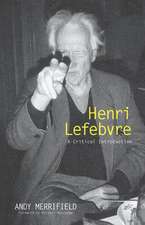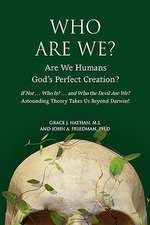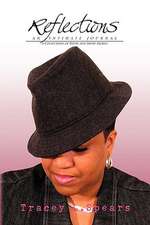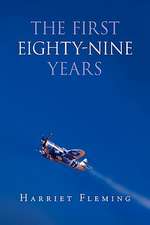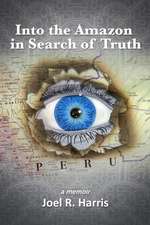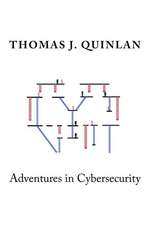Strangers in the House
Autor Raja Shehadehen Limba Engleză Paperback – 15 iul 2009
| Toate formatele și edițiile | Preț | Express |
|---|---|---|
| Paperback (2) | 53.94 lei 3-5 săpt. | +20.40 lei 6-12 zile |
| Profile – 15 iul 2009 | 53.94 lei 3-5 săpt. | +20.40 lei 6-12 zile |
| Penguin Books – 31 mar 2003 | 131.75 lei 3-5 săpt. |
Preț: 53.94 lei
Preț vechi: 63.88 lei
-16% Nou
Puncte Express: 81
Preț estimativ în valută:
10.32€ • 11.04$ • 8.61£
10.32€ • 11.04$ • 8.61£
Carte disponibilă
Livrare economică 28 martie-11 aprilie
Livrare express 13-19 martie pentru 30.39 lei
Preluare comenzi: 021 569.72.76
Specificații
ISBN-13: 9781846682506
ISBN-10: 1846682509
Pagini: 240
Dimensiuni: 128 x 196 x 22 mm
Greutate: 0.25 kg
Ediția:Main
Editura: Profile
Colecția Profile Books
Locul publicării:London, United Kingdom
ISBN-10: 1846682509
Pagini: 240
Dimensiuni: 128 x 196 x 22 mm
Greutate: 0.25 kg
Ediția:Main
Editura: Profile
Colecția Profile Books
Locul publicării:London, United Kingdom
Notă biografică
Raja Shehadeh is a Palestinian lawyer and writer who lives in Ramallah. He is the founder of a pioneering human rights organisation called Al-Haq, an affiliate of the International Commission of Jurists. His most recent book, Palestinian Walks, won the 2008 Orwell Prize for Political Writing.
Recenzii
A sad, dignified book. Shehadeh writes with great clarity and simplicity, but no bitterness, more in sorrow than in anger about the unhappy history of his family and country.
A remarkable human document that explains better than a hundred political treatises why there is still no peace in the Middle East
A book with a huge sensory impact
Its intimate portrayal of one family's history offers important insights into the wider Palestinian story
Distinctive and truly impressive
A remarkable human document that explains better than a hundred political treatises why there is still no peace in the Middle East
A book with a huge sensory impact
Its intimate portrayal of one family's history offers important insights into the wider Palestinian story
Distinctive and truly impressive
Extras
The house where my family lived, and in which I was born, was the summerhouse of my grandmother. Its proximity to the deep-set Ramallah hills could have made for a pleasant life except for the nagging feeling of being in the wrong place. I was always reminded that we were made for a better life — and that this better life had been left behind in Jaffa. Jaffa, I was told, was the bride of the sea, and Ramallah did not even have a sea. Jaffa was a pearl, a diamond-studded lantern rising from the water, and Ramallah was a drab, cold, backward village where nothing ever happened. Jaffa was affluence: a house with original oil paintings, and my grandfather's fully equipped Continental Hotel, which my grandmother always boasted had a restaurant with enough china and silver cutlery for two hundred guests. Jaffa was where my father had developed a comprehensive law library in his office in Nuzha Street; where there were courts, a busy nightlife, Dora, the excellent Jewish seamstress from Tel Aviv who made my mother's clothes, tasty pastries from Kapulski's, and orange groves. And above all these, Jaffa was the sea with the Abdo falafel stand right by the water, where my parents ordered sandwiches and strolled in the silver twilight on the golden sand in warm winter evenings with the waves of the sea gently rippling against the shore. How I yearned throughout my childhood for these imagined pleasures! How I thought life would have been more resplendent and exciting had we still been there, across the horizon, in the beautiful city that I only heard about and yearned to see. This version ofJaffa that I grew up coveting was mainly my grandmother's. It was she who, after living for more than thirty years in Ramallah, remained gareebeh, a stranger. She was still the aristocrat from Jaffa, the daughter of the owner of the Nassar Hotel in the Street of the Kings in Haifa and the wife of Justice Saleem Shehadeh of Jaffa. Ramallah was but a village where she could never again have the kind of life to which she had been accustomed. Her eyes were always on the horizon, and through following her gaze I too learned to avoid seeing what was here and to fix my sight on the distant horizon. I saw Ramallah and its hills not for what they were but as the observation point from which to view what lay beyond, at the Jaffa I had never known. We would be walking home in the evening and she would stop me on the top of the hill before going down the street leading to our house: "Look," she would say. "Look at the lights on the horizon." And she would stand in reverent silence. I stood next to her, holding her soft warm hand, and held my breath as I tried to concentrate all my attention on the lit horizon, imagining what sort of place these lights illuminated. For a long time I was hostage to the memories, perceptions, and attitudes of others that I could not abandon. My sense of place was not mine. But I never thought I had the right to claim it. My elders knew better. I felt it was natural to defer to them on such matters. In Ramallah we lived far away from the sea, but not so far as not to see it on clear days. Fold after fold of the cup-shaped hills rolled on to the sea. They were called partridge, duck, and swan, a whole herd of tumbling birds with their backs turned to us. From our house I could follow the valley that meandered between the interlocking hills on both sides, making the land seem like a turbulent wavy sea that slowly dropped from where I stood all the way down to the horizon, folding and unfolding in a continuous stretch as far as the eye could see. Our house was the perfect observation point from which to watch the land to the west that I grew up hearing so much about. The hills on both sides of the wadi were varied in texture. Some were rockier than others. Some were planted with olive and vine. This made them assume different hues at different times of the day. In the morning they had frank strong colors, white and brown and green. Midday the slowly moving clouds cast their shadows, creating different shades as they slid across the sky. Toward sunset the hills became rosy and luminous as the rays of the setting sun streaked the limestone boulders and rocks. But when the humidity from the sea wafted along from the west they became downy and covered with a velvet mysterious blue that blurred the vision. And when in autumn the weather became very humid we would wake up to find that the fog had filled up the spaces between the hills like a sea of white thick snow. Unlike my grandmother, my father rarely spoke of Jaffa, at least not to us, his children. How did he feel when he stood angry and despondent among these same hills? Was he disdainful of the smell of the dung as he listened to the mooing of the hungry cows and the chatter of the refugees from Lifta, who came from their village in West Jerusalem and squatted in the large empty house across the street? He was handling an eviction case against them. His eyes invariably took a cursory scornful view of these Ramallah hills and would then focus on the distant horizon, the bluish line of the sea in the day and the glittering array of lights at night. Night after night he stood motionless, hardly breathing, seemingly captured by this grand vista and trying to imagine what went on over there, in the luminous world of Jaffa he had abandoned. Here was only brown thistle and stone, an arid land without hope or future. One part of him lived in the distance, in the lit horizon; the other lived in the cold, unwelcoming summerhouse of my grandmother across the street from the offensive smell of the cows of the Lifta refugees. There was always a breeze coming from the hills. They were like a funnel through which the wind always blew. I would look at the hills next to our house for relief from the narrow confines of our close living quarters. To me they were the untamed wild, so close and yet so distant, a space of promise and mystery someday to be explored — yet for now but a funnel for the humid wind from my father's mythic Jaffa. The house I lived in as a child had two bedrooms for our family of six. Wind whistled through the pine trees in the garden. A constant gentle breeze in summer; in winter a strong humid wind that swept the needles off the majestic trees and added drama to the cold interior of our poorly insulated house. The incessant angry roar caused me to feel great insecurity and fear and increased my yearning with every ferocious wave for the mild and windless winters of the Jaffa of my parents. Many of my parents' friends were leaving the city as early as December 1947. They were rich and either had houses elsewhere or were going to stay with relatives. They planned to stay away until the fighting stopped. My mother recalls walking up the streets and counting the number of empty houses that belonged to friends she used to visit. The population of the town was shrinking. Could we have made the wrong decision by staying? my father wondered. They had a two-year-old daughter and my mother was pregnant with her second child. The questions they continued to ask themselves were whether they would be left without food for the children and whether they would be safe. Then a truck carrying a load of oranges managed to elude the checkpoints and make its way into the center of the town. It was driven by members of the Stern Gang, the extremist Jewish group, who left the booby-trapped truck to explode, causing indiscriminate damage and scores of casualties. This incident caused a new wave of departures from the city, but my parents were determined to stay. On April 22, 1948, the port city of Haifa fell to the Jewish forces, and many of my mother's relatives were forced to leave for Lebanon. It was becoming clear that Jaffa would be next. On April 26 the Irgun mortars began shelling Jaffa to cut the Manshieh quarter, not far from where my parents lived, from the main city. With daily shelling of the city, life became unbearable. The Arab forces were disorganized and ineffective, and the British seemed to step aside and allow the Jewish forces a free hand. My parents felt unprotected. My parents are first cousins. Both their fathers had left Ramallah as young men and never returned. My paternal grandfather owned a weekly newspaper and a printing press in Jerusalem, where my father was raised. My maternal grandfather was a district court judge in Jaffa, where my mother was born. My father opened a law office in Jaffa in 1936, married my mother in 1945, and settled there. My maternal grandfather built a summerhouse in Ramallah, where he brought his family to escape the hot and humid summers of Jaffa. He deposited them there and went on his annual vacation to Austria. A question that will never be answered is whether my parents would have left Jaffa had my maternal grandfather not owned this house in Ramallah. Its presence at such close proximity to Jaffa provided them with a tempting alternative. Moving to it in April would save them from the hardship and danger of the skirmishes that were disrupting life in Jaffa. Once the situation became calmer they would move back. They thought they were leaving for two weeks. For a long time I wondered why they had fixed on a two-week absence until I realized that in my father's calculations the worst that could happen was the implementation of the UN plan for the partition of Palestine into a Jewish and an Arab state; if this happened, Jaffa was slated to be on the Arab side. The British were due to leave in mid-May. He left at the end of April, two weeks before what he thought was to be the decisive date. But the Palestinian population had rejected the UN plan and the Jewish one had its eye on a larger territory — which they were able to secure through the war that ensued. The two weeks stretched into forever. On May 14, three weeks after my parents left Jaffa, the establishment of the Israeli state was declared over an area of land that was larger than what the UN had reserved for the Jews. Jaffa was included. My father could not return. But if my father blamed himself for having left, these feelings receded with the events of the evening of July 17. "It was a windless, warm evening," I later heard my father relate to friends. "We were able to sit out on the porch late into the night. It was already eleven when we finally turned in. Two hours later, I was awakened by knocking on the door. When I opened the door I found my close friend Dr. Bishara standing there, looking very haggard and exhausted. He had refused to leave Jaffa with us and instead had moved to Lydda to continue serving patients. I was shocked to see him standing there so late at night. I will never forget how he looked. He was so changed that he was like a stranger to me. His face seemed longer than usual, with two lines down the middle of each cheek. He was pale and withdrawn. His lips were black and thin and his mouth was parched. But what stood out most of all was the look in his brown eyes. The dark circles around them were common enough after several sleepless nights, but Dr. Bishara's pupils had an inward gaze. His eyes were not wilting from lack of sleep. Opaque, they held a deeply pained, bewildered expression of dread and emptiness, a vulnerable emptiness. Usually filled with warmth and humanity, they had a look of revulsion. He was unable to communicate the horror he had witnessed. "Much as I wanted to know what had happened, I asked no questions. I gently helped the doctor to the living room couch. The yet-untold horrors he had experienced perturbed me. When we got up the next morning we found that thousands of refugees who had walked all the way from Lydda and Ramle were pouring into Ramallah, each with a story of the misery and hardship they encountered in the course of their forced march from the coastal cities to the hill town of Ramallah." That first winter brought one of the worst snowstorms Ramallah had ever had. My father said that the snow seemed to bring the hills across the valley closer to our house. The hills wore single lumps of snow over their large humped backs and looked like huge igloos. Down toward the west the snow was punctuated by swerving dark brown lines along the terraces, dotted all the way with green olive trees. Farther on along the horizon the hills remained uncovered, shimmering with their usual range of blue colors: a symphony in blue. Thirty thousand refugees had poured into Ramallah, and most of them had to take shelter in tents that were provided by relief organizations. Comparatively speaking, my father's circumstances were less desperate. At least he had a roof over his head, although it belonged to his mother-in-law. But what began as a temporary stay in Ramallah became a permanent one. Three years later I was born in that same summerhouse across the hills from Jaffa.
Descriere
Descriere de la o altă ediție sau format:
This revealing story of a father-son relationship, the first memoir of its kind by a Palestinian living in the Occupied Territories, is set against the backdrop of Middle East hostilities and more than 30 years under military occupation. Above all, it is a moving description of the daily lives of those who have chosen to remain on their land.
This revealing story of a father-son relationship, the first memoir of its kind by a Palestinian living in the Occupied Territories, is set against the backdrop of Middle East hostilities and more than 30 years under military occupation. Above all, it is a moving description of the daily lives of those who have chosen to remain on their land.

